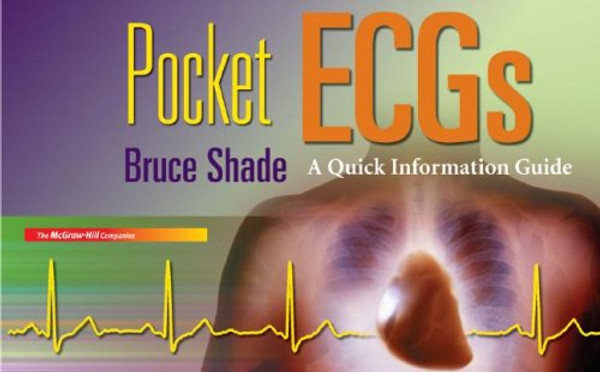Product Overview
This book is a portable, easy to view, quick reference pocket guide. It puts the key points about how to recognize the various dysrhythmias and cardiac conditions at the fingertips of the practitioner allowing them to quickly identify what they see in the field and/or clinical setting. It is also a useful tool in the classroom for the student to quickly look up key information. There is a short introduction that talks about the location of the heart, lead placement and the nine step process for interpreting the various wave forms and characteristics. It briefly describes the normal and abnormal features found on ECG tracings. It visually demonstrates how to calculate the heart rate, identify irregularities and identify and measure the various waveforms, intervals and segments. The introductory information is followed by chapters, broken out by where the dysrhythmias originate (i.e., sinus, atrial, junctional, ventricular, AV heart block), on the key characteristics of various dysrhythmias and conditions that can be detected through the use of the electrocardiogram.
McGraw-Hill Public Safety Website







